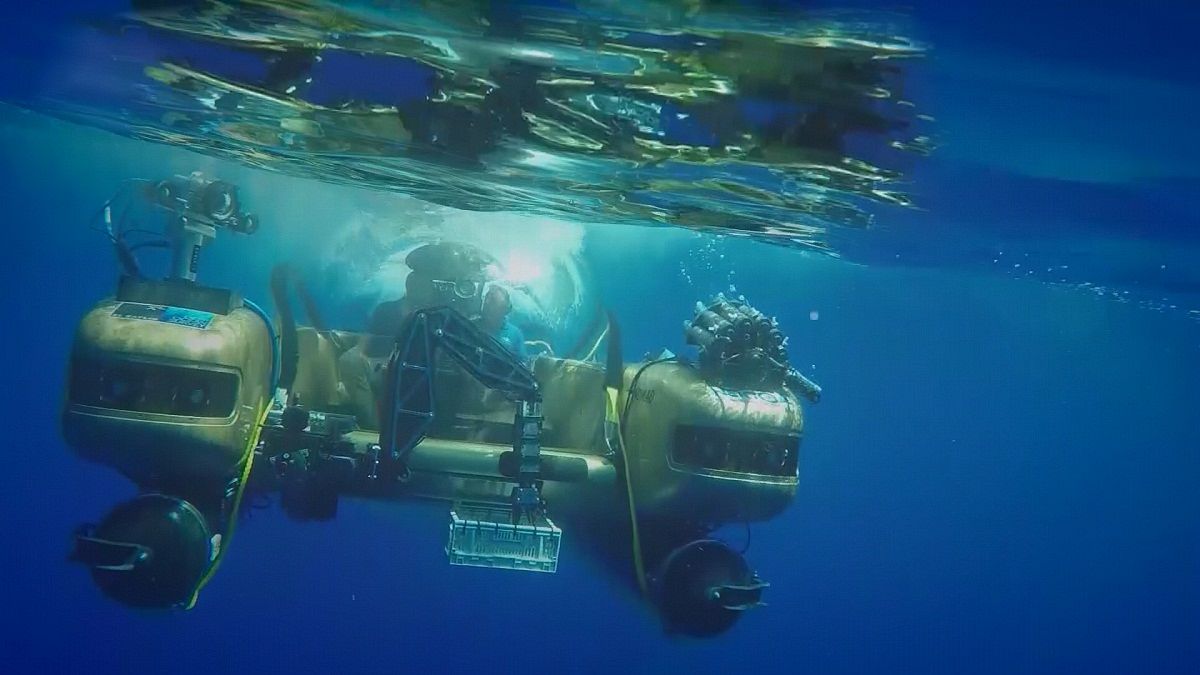About 10 miles off the coast of Bermuda, scientists are analysing the health of the Atlantic ocean where human activities like overfishing and oil spills, are having terrible…
About 10 miles off the coast of Bermuda, scientists are analysing the health of the Atlantic ocean where human activities like overfishing and oil spills, are having terrible repercussions.
A pioneering mission
The Nekton Mission claims to be the most comprehensive ocean-survey ever. Aboard their Triton submarine the team venture to depths of 150 metres to assess the health of coral reefs on the ocean bed.
First #360 video from
nektonmission</a> submersibles online now <a href="https://t.co/G05aa5jQFK">https://t.co/G05aa5jQFK</a> <a href="https://twitter.com/hashtag/cagti16?src=hash">#cagti16</a></p>— Jamie Buchanan-Dunlo (jamie_bd) July 26, 2016
“Critical for humanity”
Oliver Steeds, the mission Director, outlined the importance of the project: “We know that the deep ocean is changing at its fastest rate for millions and millions of years. What we don’t really understand at the moment is its health and its resilience. We need far more missions like this and that’s one of the problems, trillions is spent going into outer space and hardly any money is being spent going into inner space, into the deep ocean, despite how critical it is for humanity.”
GUE_Baseline</a> <a href="https://twitter.com/GUEhq">GUEhqnektonmission</a> helped us dive with submersibles today. Fairly epic. <a href="https://t.co/NW6gJYcEPa">pic.twitter.com/NW6gJYcEPa</a></p>— VRTÜL (VRTULINC) July 27, 2016
The scientists are studying various elements, from water chemistry to the impact on biodiversity. They film with high-resolution cameras while their submarine takes samples to be analysed back at the lab.
Alex Rogers, a biologist at Oxford University, told reporters: “When you seriously over-exploit marine eco-systems, it can take them decades to recover. And that’s in shallow water, you can imagine what happens if you drag a trawl through a deep sea coral bed. That is going to take hundreds of years to recover if it recovers at all.”
Researchers: BP oil spill’s impact was “deeper and wider” than thought: New findings of deep-sea coral damage … http://t.co/lAZLalBCMW
— kilokeal (@kilokeal) July 29, 2014
Since the start of the industrial revolution, our oceans have absorbed over 500 billion tonnes of CO2 from the atmosphere, increasing the acidity of the water by 30 percent. Temperatures have also increased by 1° C in the last 30 years.
The Nekton Mission team says humanity must act urgently to prevent any further damage – for our own sake.



